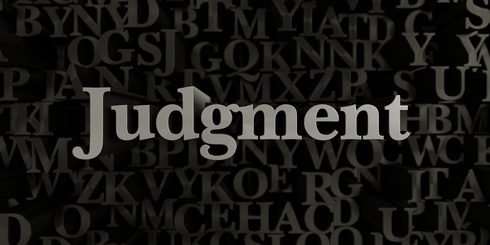 The Bankruptcy Appellate Panel of the U.S. Court of Appeals for the Sixth Circuit recently held that a mortgage foreclosure deficiency judgment lien may be avoided under 11 U.S.C. § 522(f)(2), reversing the bankruptcy court’s ruling to the contrary.
The Bankruptcy Appellate Panel of the U.S. Court of Appeals for the Sixth Circuit recently held that a mortgage foreclosure deficiency judgment lien may be avoided under 11 U.S.C. § 522(f)(2), reversing the bankruptcy court’s ruling to the contrary.
A copy of the opinion in In re Antoinette Pace is available at: Link to Opinion.
The debtor filed a chapter 13 bankruptcy, listing her residence in Ohio on her schedules with a value of $147,630. She also claimed the residence as exempt homestead in the amount of $132,900, the maximum allowed pursuant to Ohio law.
On her Schedule D, the debtor listed judicial or judgment liens as well as a secured claim held by the county treasurer for unpaid taxes as encumbrances on her homestead. The schedules did not reflect a mortgage on the home, but the debtor’s statement of financial affairs reflected a completed foreclosure action.
The debtor converted her case to a chapter 7 liquidation, and filed a motion to avoid the liens on the basis that they impaired her homestead exemption.
At the hearing on the motion, the bankruptcy court “expressed concern that Debtor willfully allowed real estate taxes … to remain unpaid to create an impairment to her homestead exemption [and] ordered Debtor to file a supplemental brief on the issue.”
After briefing, the bankruptcy court entered an order granting in part and denying in part the debtor’s motion to avoid the liens. Instead of addressing the willful impairment issue that the bankruptcy court asked for briefs on, it held that under the § 522(f) the debtor’s homestead exemption was impaired as to the two smaller liens, one for $1,889.72 and the other for $2,975, and avoided those liens.
The bankruptcy court, however, denied the motion as to the large lien in the amount of $141,013.65 because it arose out of a mortgage foreclosure and §522(f)(2)(C) prohibited the avoidance of such liens. The debtor appealed.
On appeal, the Sixth Circuit first rejected the debtor’s argument that the bankruptcy court erred by denying the motion to avoid liens, given that nobody objected to the relief requested, reasoning that the bankruptcy court had an independent obligation to consider the merits of the motion, regardless of whether any objection was raised.
The Appellate Court then turned to whether § 522(f)(2)(C) prohibits the avoidance of a judicial lien arising from a mortgage foreclosure deficiency judgment.
This subsection provides that a debtor may avoid a lien to the extent that it impairs the debtor’s homestead exemption, if such lien is “a judicial lien, other than a judicial lien that secures a debt of a kind that is specified in section 523(a)(5).” It then provides a formula for calculating the degree of impairment, but goes on to provide an exception that “[t]his paragraph shall not apply with respect to a judgment arising out of a mortgage foreclosure.”
The Sixth Circuit noted that there is a “split in authority” on the “purely legal question of whether a mortgage deficiency judgment lien is a ‘judgment arising out of a mortgage foreclosure’ within the meaning of § 522(f)(2)(C).” The Court also noted that the “overwhelming majority of courts” have held that mortgage deficiency liens are not judgments arising out of a mortgage foreclosure and thus are avoidable, with only two bankruptcy rulings in Connecticut in the minority.
After analyzing the different rationales relied upon by courts in the majority, which include textual analysis of § 522(f), reliance on state foreclosure law differentiating between equitable foreclosure claims and legal deficiency claims, or a combination thereof, the Sixth Circuit, found “that § 522(f)(2)(C) is unambiguous, and no review of state law or legislative history is necessary or appropriate to interpret its meaning.”
Relying on general principles of statutory construction, the Court held that, interpreting § 522(f)(2)(C) according to its plain meaning and structure, “it does not preclude avoidance of mortgage deficiency judgment liens. Rather, § 522(f)(2)(C) ‘clarifies that the entry of a foreclosure judgment does not convert the underlying consensual mortgage into a judicial lien which may be avoided.”
Accordingly, the bankruptcy court’s ruling “that § 522(f)(2)(C) precludes avoidance of a deficiency judgment lien” was reversed, and the case was remanded to the bankruptcy court for entry of an order consistent with the Court’s opinion.


